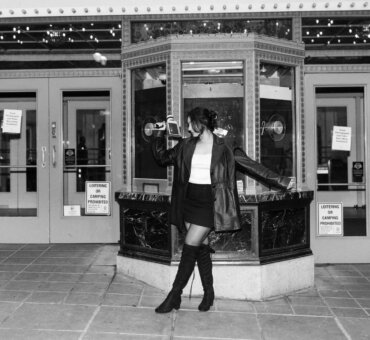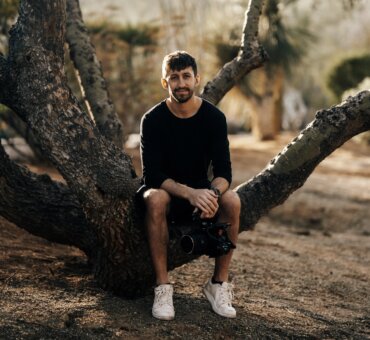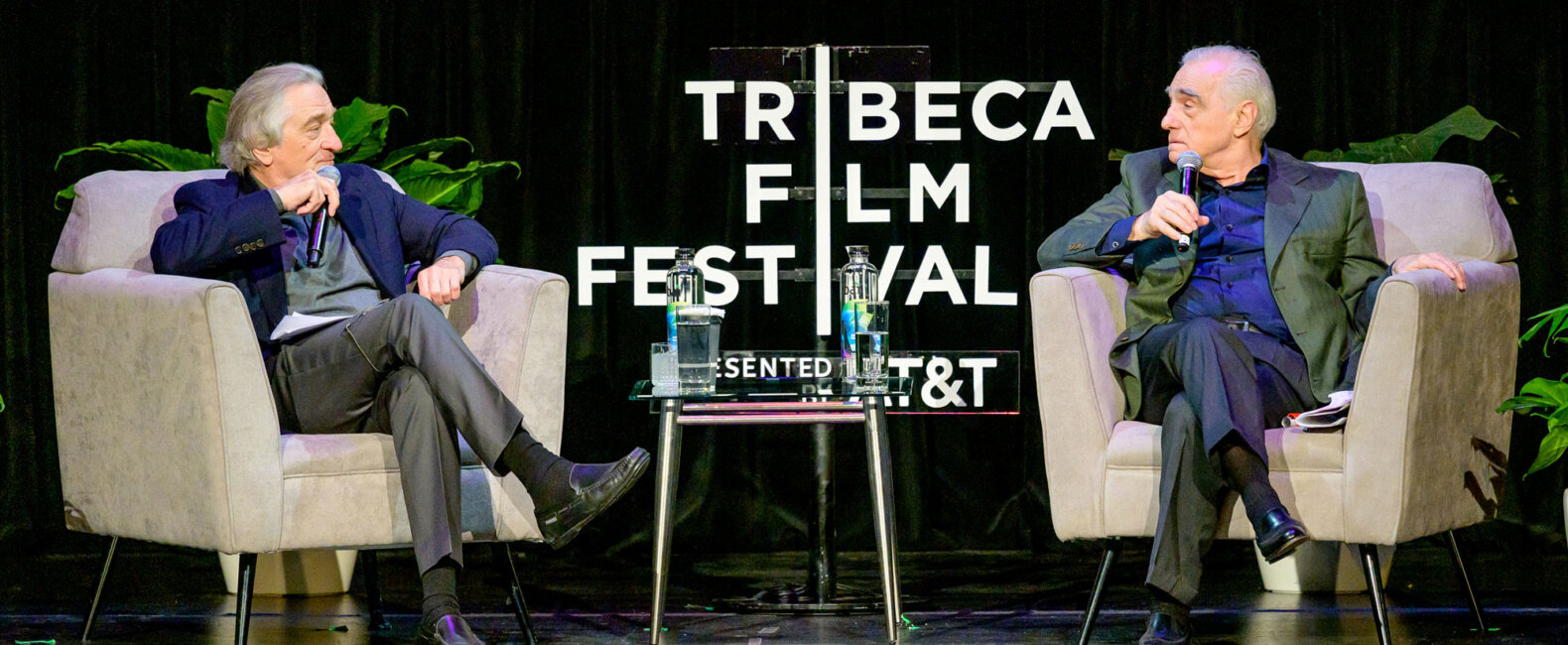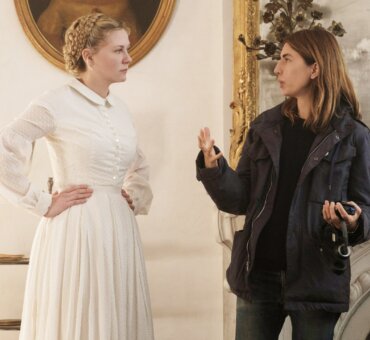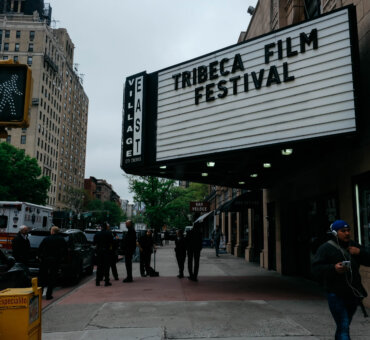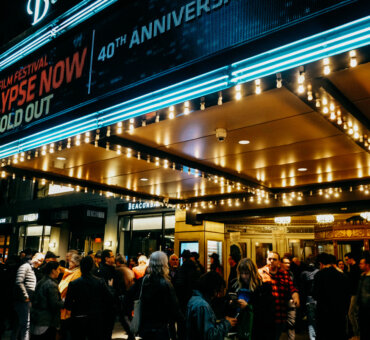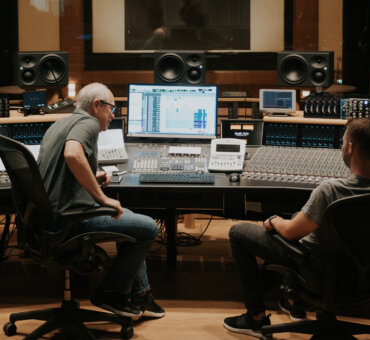Editor’s note: This is the first installation of our coverage at Tribeca. We’ve been busy screening some great films and sitting in on talks with incredible filmmakers. Stay tuned for a full recap and rundown.
What do you do when you’re sitting in the same room with quite possibly the most legendary filmmakers of all time? Well, you listen to every word. Every word.
We had the opportunity to stop in at the 2019 Tribeca Film Festival this week to attend some events, screenings, and meet up with some old friends — and everything started with a double-header of presentations featuring iconic filmmakers.
First, we sat in on a conversation between Martin Scorsese and longtime collaborator Robert De Niro. Second, we screened the 40th-anniversary cut of Apocalypse Now with Francis Ford Coppola, who was later interviewed by director Steven Soderbergh. Both events were packed with stories, anecdotes, and reflections across long careers. But, if you’ve followed this blog for any period of time, who know we’re more focused on the why than the what.
If you’re curious for the what check out some great coverage from Variety and Rolling Stone for a full rundown of what they covered.
As filmmakers, though, we were more curious about insights we could take away from the pillars of the film community. While their conversations were roving, we were able to glean some great quotes from these brilliant minds. So, here’s the first serving of our Tribeca stew featuring a few insights from Martin Scorsese and Francis Ford Coppola.
Martin Scorsese on Mean Streets and Making Personal Films:
Scorsese and De Niro started their talk with this iconic scene from Mean Streets, and he explained why the film was so important to him personally. Ultimately, he saw his work on the film as a time capsule for a time, something that he valued and wanted to share with the world:
“This thing about the scene is very important because when I made this movie it was a real dream and it came out of who I was and who I am, that sort of thing, and my own heart, in a way, and soul. I never even thought the picture would be released quite honestly, and I thought when this scene was done that if anybody ever wanted to know what it was like living in that world at that time, it’s like a time capsule to just play this one scene even. To get a sense of the subculture of the Italian Americans and the Neapolitans in that area. Downtown, not necessarily the Bronx or the Westside, but the Eastside.”
Francis Ford Coppola on Knowing Where to Start:
Steven Soderbergh said when he starts a film he needs to know two things: Know what you need and know when you’ve got it. As far as working on Apocalypse Now, he then asked Coppola how he could even know those things on such a large production. Coppola responded with maybe the most astute definition of filmmaking we’ve heard:
“What are you looking for? You’re looking for life. You’re looking for something that’s alive, and even in this gigantic collection of events and things, there’s always the life in the actors, in the moment, and you’re really looking for the film. It’s like Michelangelo’s old thing — you just kind of weigh everything that’s not part of the fabric. You look for the movie that’s already there trying to talk to you.”
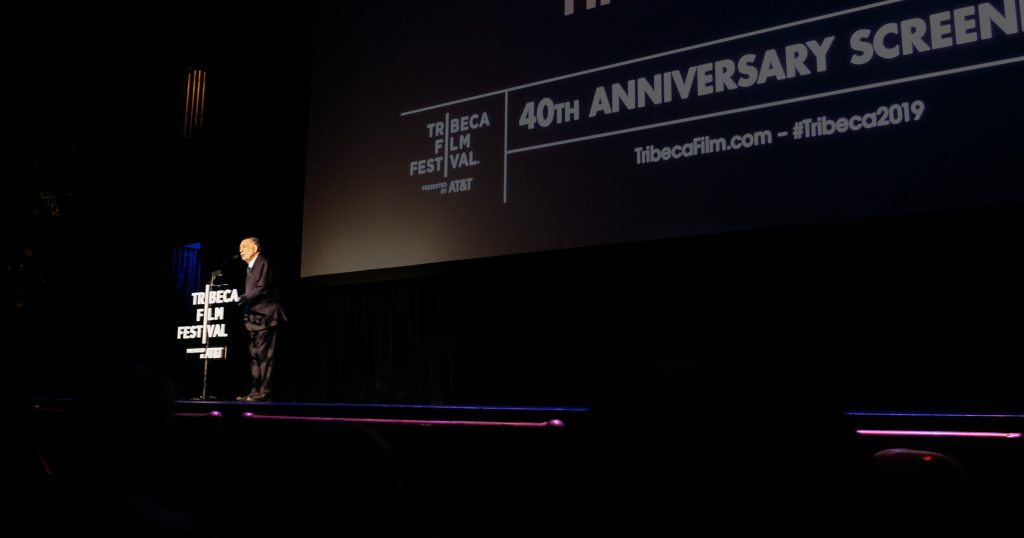
Martin Scorsese on Faith, Conviction, and Silence:
When Scorsese dove into his work on Silence, he admitted that it took him years to be able to tell this story, just to simply understand what he was trying to convey. He hadn’t made this poignant story on faith because he didn’t understand his own faith yet. To us, it’s encouraging and inspiring to know that even some like Martin Scorsese has to wait on a great idea until he fully grasps it. Then, once he did, he dove in regardless of popular opinion:
“For me, that faith I was instilled with when I was a kid — that changes. You get older. You go through the sixties and everything is open, stuff is going on. You start to question everything. Ultimately, it’s been a long kind of struggle — I’m not finished, of course — towards a mature faith, whatever that is. This film Silence is one that took me a long time to pull together.
Jay Cox and I wrote the script, based on Shusaku Endo, his novel, and it took so long because I didn’t know how to write it based on the script. I didn’t know what he was getting to. Finally, I think I got it. I think. I’m not sure.
Ultimately, it’s a struggle towards the very essence of faith, not certainty. Right now faith, I don’t know, at a certain level is very surface… the kind of thing I’m dealing with here and even The Last Temptation of Christ is not fashionable. But, it doesn’t mean it isn’t true. It doesn’t mean you don’t do it with conviction. It doesn’t mean there isn’t room for it. We may wind up against a wall, who knows. But, what is faith?
[Terrance] Malick wrote me a letter when he saw the picture and he said, “What does Christ want from us?” It’s interesting, but it’s not in-demand.”
Martin Scorsese on Starting Over with The King of Comedy:
Following the production of Raging Bull, Scorsese’s health was poor and he didn’t know where to go next. But, when De Niro approached him with the script for The King of Comedy, he knew it was more than a good film — it was a chance for redefinition. He’d be cornered into a certain type of film and decided it was time to rethink what a good story is, so he used his next project as a chance to develop his storytelling skills more than his career. Ultimately it paid off in both regards:
“I mean what happened with me in the picture is that, after Raging Bull I’d sort of put so much into that film, I just kinda collapsed from the way I had walking pneumonia and all kinds of stuff and I was completely out of it, and I agreed to do this one, because by that point I began to understand more of what you [Robert De Niro] were going through.
And the script was really good, and I decided that because of the techniques I used in Raging Bull and Taxi Driver, in the pictures, that I was gonna kinda pull back and redefine what the narrative through the camera is.
This film is very reliant on dialogue and relationships of people in the frame, and I shot it as simply as possible and I wanted to recreate in my head, like a reset button, of how to make a movie, or how to tell a story, I should say, not even a movie, tell a story. And it was a great story.”

Francis Ford Coppola on the Value of Struggle:
It turns out making two of the most iconic movies of all time doesn’t come without its fair share of anxiety and struggle. In fact, it seems like a necessary evil for great art. Soderbergh asked why he decided to make his productions so difficult and Coppola answered by saying it wasn’t a conscious decision — but maybe a subconcious thought process that put the films above all else:
“I was sure I was going to get fired. The Godfather, not so much the second Godfather, but the first Godfather and Apocalypse [Now}. I couldn’t have been more miserable wasting those years of my youth, and if someone had said, ‘You know, these movies are gonna be okay later on. People are gonna see them 40 years later,’ I could have saved so much misery.
But maybe, I wonder, had they done that if I would have just said, “Ah, hell it’s gonna be a success.” But I kept going and staying up all night and trying another ending and trying another version. I just kept trying. I have a lot of energy and a good imagination. That’s about the limit of what I have. And I did keep going back, and I think your [Steven Sodergergh] question is good.
Maybe there was an easy way to get out of this and just kind of, with some degree of honor. But I don’t know, maybe I had an instinct that if I could really get the beauty and the power of [Joseph] Conrad with his beautiful novella in the setting, this extraordinary setting of Vietnam with the surfers and the drugs and the blue, yellow, green smoke and stuff, maybe it would be extraordinary. Maybe I sensed that.”
There was so much to take away from these two filmmakers. So much. But, after listening to the two of them break down their careers and experiences, a few elements came through over and over again. Risk and conviction. Here’s one more quote from Martin Scorsese:
“In any medium it was, you know, basically, we were confident in what we were doing and we believed in it, and if people don’t agree with you they don’t agree with you. You want to be liked by everybody but it ain’t going to happen.”
If we took away one thing, it was this: these two men are legends because they valued their art and expression above all else. They didn’t do it for the success or the money or even to be respected. They made their films because they had a vision, a story to tell, and were willing to take any risk necessary to bring it to life. Sure, they could have taken a safer and easier path, but that would have made Sunday night a lot less interesting.






































































